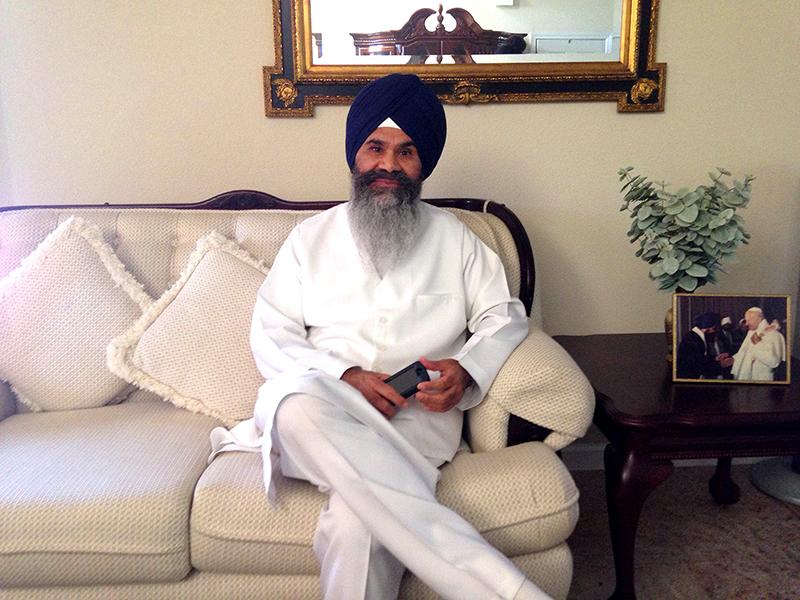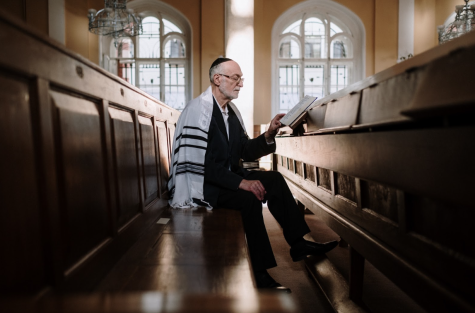Sikh leader speaks out against stereotypes
August 21, 2014
Bhai Jagjit Singh, the president of the Sikh Missionary Society of USA, is doing his best to combat what he considers a negative attitude towards foreigners and Sikhs in America.
“We all bear the burden when we allow our sons and daughters to fall into the intellectual and spiritual waste bin and again when they isolate us from their humanity,” said Singh, in an interview at his home. He also discussed other problems facing his community, such as passing down traditions to the next generation.
He was referring to a shooting rampage in a Sikh temple in Oak Creek, Wisconsin in August 2012, when a former solider and white supremacist shot and killed six people and wounded three others. This was the latest in a string of hate crimes since 9/11 when Sikhs were mistaken for Muslims because of their turbans and long beards. Osama Bin Laden, the self proclaimed mastermind of the 9/11 bombing which killed more than 3,000 people in New York City was shown on TV wearing a turban and sporting a long beard.
“In many temples some incident happened because of this misunderstanding,” Singh said.
The Sikh Coalition has reported 700 incidents in the past nine years; the FBI does not track anti-Sikh hate crimes. There are 750,000 Sikhs in the U.S. and a third of those live in California, according to the San Francisco Chronicle.
He pointed out people often see the turban of a Sikh member and assume he is a foreigner or practices other religions, which is one of several misconceptions.
To counter this image Singh said he, and the missionary team he oversees in Hayward, and the 15 other Bay Area temples are inviting members of their communities to their gurdwaras, or temples, to share more about their faith.
“All Sikh temples are open to everyone, there is no membership, no restriction,” he said. “Anyone can enjoy the temple, everyone is welcome.”
Another problem they deal with is passing down their traditions and teachings, he said. He said having children in a different country and teaching them values that were taught to him growing up could get confusing. “It’s hard to give them all the teaching of Sikhism and it’s challenging,” said Singh.
The Sikh religion dates back 500 years and is originally from India. Sikhs believe in one god and are guided to live by five principles of faith. The first, Naam Japna, is to give thanks to all that is in the world. The second, Dharam di Kirat, means to make an honest living through hard work in all aspects of one’s life. The third, Wand ke Shakna, means to share everything you earn. The fourth, Bhana Mannana, is to accept the present moment. The last pillar is Sarbat ka Bhalla, which means unity and help for all of humanity.
Singh said he has been in the United States for over 35 years. Before that he was posted in Nairobi, Kenya in Africa, where he met with Pope John Paul II in 1985, he said.
“Sikh people are very generous, and very opened minded. They want to help all the religions and all the people,” says Singh. “We are all interconnected and we are one,” he said.
Every Wednesday and Sunday special services are open to the public. And although the gurdwaras are not putting on special events to attract people to their community, he said they were relying on word of mouth to show their openness.
True Sikhism, he said, is quite the opposite of the image of violence or oppression, Singh stressed. The first Sikh prayer is to “wish good for all of humanity on the planet,” he pointed out.
The Sikh community is very open to every culture. “It doesn’t matter, what religion you belong to, but ultimately everyone belongs to one god,” said Singh. One of the unique features of the Sikh religion is their hospitality.
In every temple, you can find a 24-hour community kitchen, called Lungar, Singh said. Any person who comes to the temple is fed because Sikhs believe people gain a different level of connection once bread is broken together. A homeless person can also be sheltered for up to two weeks, he said.
“Sikh people are very generous, and very opened minded. They want to help all the religions and all the people,” says Singh.
Singh, who appears to be in his mid-60s, and who was interviewed in his home in Castro Valley, said adhering to the teachings of Sikhism can sometimes be a problem for the younger generation living in a liberal society.
















